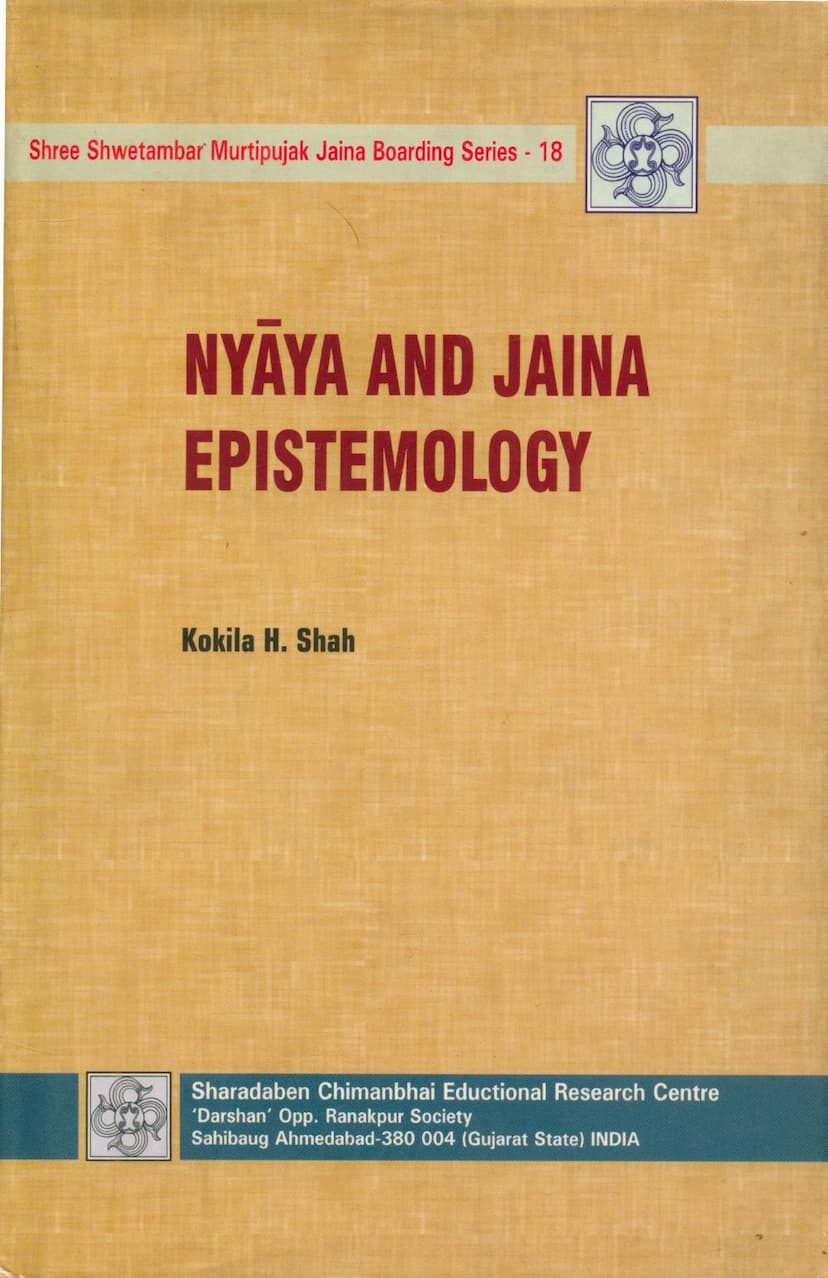Nyaya And Jaina Epistemology
Added to library: September 2, 2025

Summary
This book, "Nyāya and Jaina Epistemology: A Study in Retrospect—A Critical and Comparative Study" by Kokila H. Shah, is a doctoral thesis published as part of the Shree Shwetambar Murtipujak Jaina Boarding Series. It offers a comprehensive comparison of the epistemological frameworks of the Nyāya and Jaina philosophical schools of India.
The core argument of the book is that while both Nyāya and Jainism are realistic systems, Jainism presents a more complete and consistent form of epistemological realism. This is attributed to Jainism's unique doctrines of Anekāntavāda (the theory of manifoldness), Nayavāda (the doctrine of standpoints), and Syādvāda (the doctrine of possibility or conditional predication).
Key Themes and Comparisons:
- Realism vs. Idealism: The book begins by establishing realism as the epistemological stance of both schools, contrasting it with idealism. Realism, as presented, asserts that the objects of knowledge exist independently of the mind. Jainism is lauded for its "purely realistic system" that effectively refutes agnosticism through its concept of omniscience.
- Sources of Knowledge (Pramāņas): Both Nyāya and Jainism recognize key sources of valid knowledge, including perception (pratyakṣa), inference (anumāna), and testimony (śabda). The book delves into their respective theories on these and other sources like comparison (upamāna), noting similarities and differences, such as Jainism's broader inclusion of memory and recognition as valid means of knowledge, which Nyāya often subsumes under perception or inference.
- Nature of Knowledge and Validity: The study explores the Nyāya theory of parataḥprāmāṇya (extrinsic validity) and compares it with the Jaina approach, which generally favors extrinsic validity but also acknowledges cases of intrinsic validity. Both systems are seen as realists who believe validity is not inherent in knowledge itself but depends on external conditions or the correspondence of knowledge with reality.
- The Problem of Error: The book analyzes how both schools explain errors (viparyaya or illusion), primarily through the anyathākhyātivāda (theory of misapprehension) in Nyāya and a similar viparītakhyātivāda in Jainism, both suggesting that errors arise from misinterpreting or misapplying the available data, rather than from non-existent objects.
- The Problem of Negation: The book examines how both Nyāya and Jainism deal with negation, a complex epistemological issue. Nyāya posits a negative entity as the object of negative judgment, while Jainism sees negation as an essential aspect of reality – the "otherness" or difference inherent in things.
- The Problem of Universals: The study compares the Nyāya view of universals as independent, eternal entities (a form of extreme realism) with the Jaina perspective, which is described as a moderate realism or conceptualism tending towards realism. Jainism emphasizes resemblance among particulars as the basis for universals, avoiding the conceptual difficulties of separate universal essences.
- Jaina Logic: Anekāntavāda, Nayavāda, and Syādvāda: A significant portion of the book is dedicated to these core Jaina doctrines.
- Anekāntavāda (manifoldness) is presented as the foundation of Jaina realism, asserting that reality is complex and multi-faceted, and that each reality has an infinite number of aspects.
- Nayavāda (standpoints) offers a method to analyze reality from different angles, acknowledging that each standpoint provides a partial but valid truth. The seven nayas are detailed, explaining different ways of approaching and understanding reality.
- Syādvāda (possibility or conditional predication) builds upon Nayavāda by providing a framework of seven predications, each prefixed with "syāt" (in some respects), to reconcile apparently contradictory aspects of reality. This doctrine emphasizes that all assertions are true only under certain conditions and contexts, promoting a non-absolutist and holistic understanding of truth.
Overall Contribution:
The book highlights Jainism's unique contribution to epistemology through its doctrines of manifoldness, standpoints, and conditional predication. These doctrines, particularly Anekāntavāda, are presented as the most consistent form of realism, offering a relativistic and empirical approach to knowledge that avoids the pitfalls of absolutism, idealism, and skepticism. The author suggests that Jaina epistemology's emphasis on experience, non-absolutism, and the interconnectedness of reality resonates with modern scientific and philosophical thought, including theories of relativity and probability.
In essence, "Nyāya and Jaina Epistemology" argues that while Nyāya presents a significant realistic framework, Jainism, with its nuanced understanding of reality and knowledge, offers a more complete, consistent, and intellectually robust form of epistemological realism.